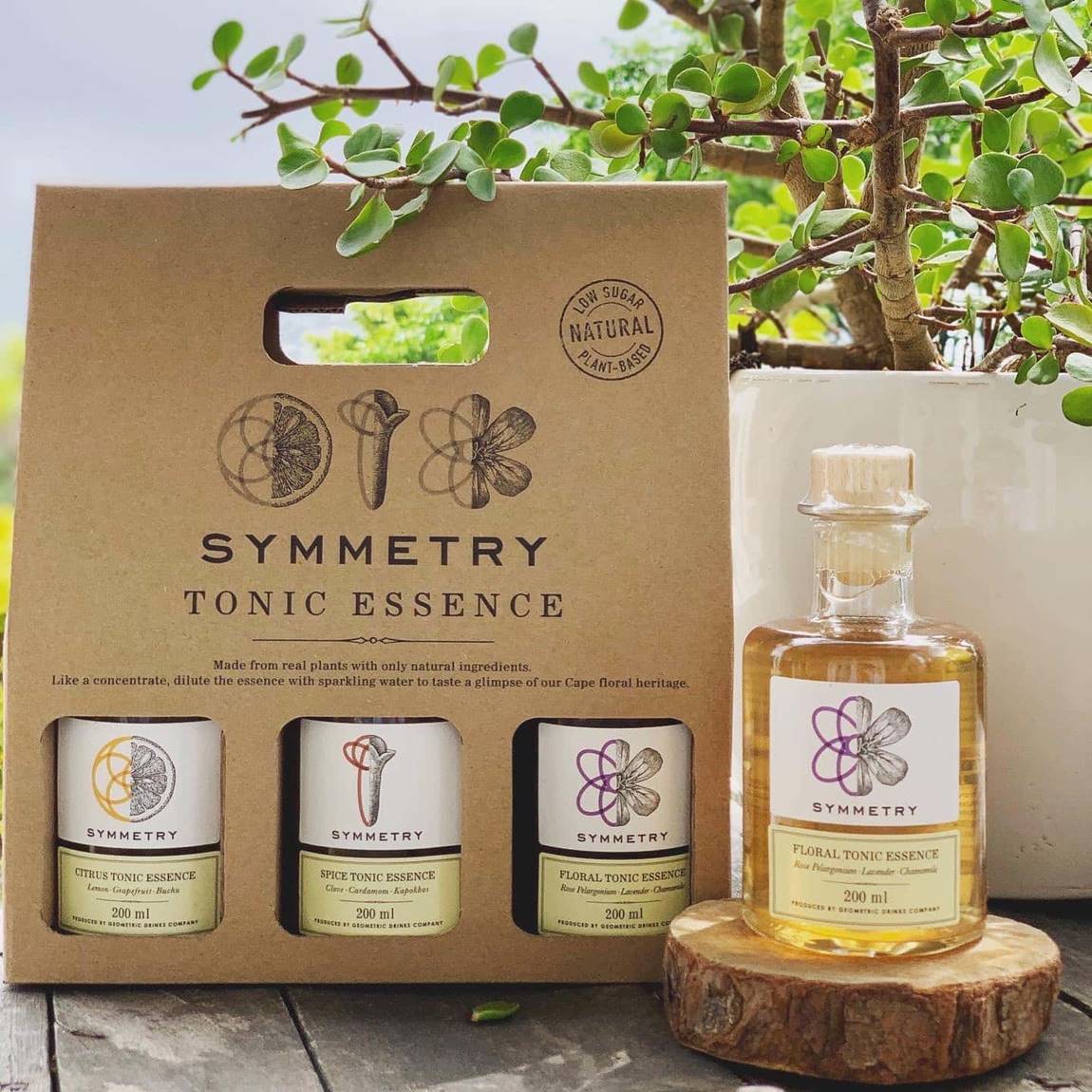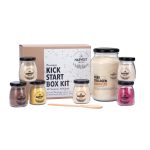When people think of a tonic, they often refer to Indian tonic mixers, but there is so much more to tonics than that.
Jean-Baptiste Cristini, distiller of the Symmetry Tonic Essence range, unpacks why the Symmetry range of tonics offers a healthier alternative to its counterparts.
A LITTLE HISTORY
“Indian tonics, as we know them, developed when British soldiers colonised India. To fight off malaria, they drank a quinine infused tonic; quinine is a pharmaceutical drug derived from the bark of the cinchona tree. Quinine is extremely bitter, so to enhance the flavour the soldiers would add copious amounts of sugar and water – that’s how Indian tonics were born. And because the British government paid the soldiers gin as part of their wages, they would mix the tonic with their gin, for what we now know as the classic G&T.”
As a tonic purist, Cristini is adamant that the Symmetry Tonic Essence range is not a mere mixer, “The word tonic has medicinal attributes to it,” he says, “Symmetry is a botanical African tonic concentrate or a muthi. It can be used as a healthy drinking alternative or as a wonderful African alternative to Indian tonics in a G&T”. These tonics take the classic G&T from a European-style cocktail and give it a local flavour.
Using the Symmetry range of tonics is an easy science when mixing your favourite G&T. “There’s a three-step process but it also means there’s no way to mess up your cocktail. Just use our name as a guideline: You use equal parts Symmetry to your gin and then add water at your discretion. This way your drink will never be out of balance because you are always respecting the gin and the tonic”.
Beyond that, you can simply enjoy the tonics as a beverage whereas it is unlikely one would consume high quantities of Indian tonic water on its own, “With their high sugar levels and synthesized ingredients, current Indian tonic waters have very little health properties; in fact, the sugar levels make most unhealthy.”
THE SUSTAINABILITY OF IT ALL
Symmetry Tonic Essence comes in glass bottles with glass tops because the tonics contain no preservatives. The glass corks give the gorgeous packaging a ‘lab’ look-and-feel. “It’s the only unfermented beverage with no preservatives in South Africa – apart from milk and water – our range is natural, untouched and unadulterated. Which is also why we have not used plastic or wooden corks, so nothing infects the product. I also love the sound of glass on glass when the cork hits the bottle”.
Symmetry Tonic Essence products are also more sustainable. “Most Indian Tonic waters come as single servings in aluminum cans, populating landfills across the planet. Whereas the average consumer will get at least 20 servings from a single bottle of Symmetry. Then once it is finished, they can reuse the bottle for something else entirely – it is more than just recycling but upcycling too; use the bottle as a vase, put your olive oil inside or even dishwashing liquid. And because it has a glass cork, products last a lot longer inside. The shelf life for Symmetry Tonic Essence is a year and half, but once open, refrigerate immediately and consume no later than two months.
TRY THE RANGE
The Floral Tonic Essence has Rose Pelargonium (a fynbos), lavender and chamomile. “You’ll find Rose Pelargonium across the Western Cape. It grows like a weed. The Floral Tonic Essence has calming, antiseptic and cleansing qualities. There’s also lemon grass and ginger in there.”
The Spice Tonic Essence is the most thirst-quenching and hydrating of the tonics. “As your palette becomes more refined the citrus notes in the cardamom feel like there is a grapefruit zest explosion in your mouth and the clove is not too dominating while Kapokbos make it a vivacious, warming drink.”
Symmetry Citrus Tonic Essence, with its zesty lemon and grapefruit extracts combined with fynbos botanicals are traditionally used for digestive ailments.
For more information on ingredients, botanicals, pairings or to purchase, please visit, Geometric Drinks or YuppieChef or Takealot.



